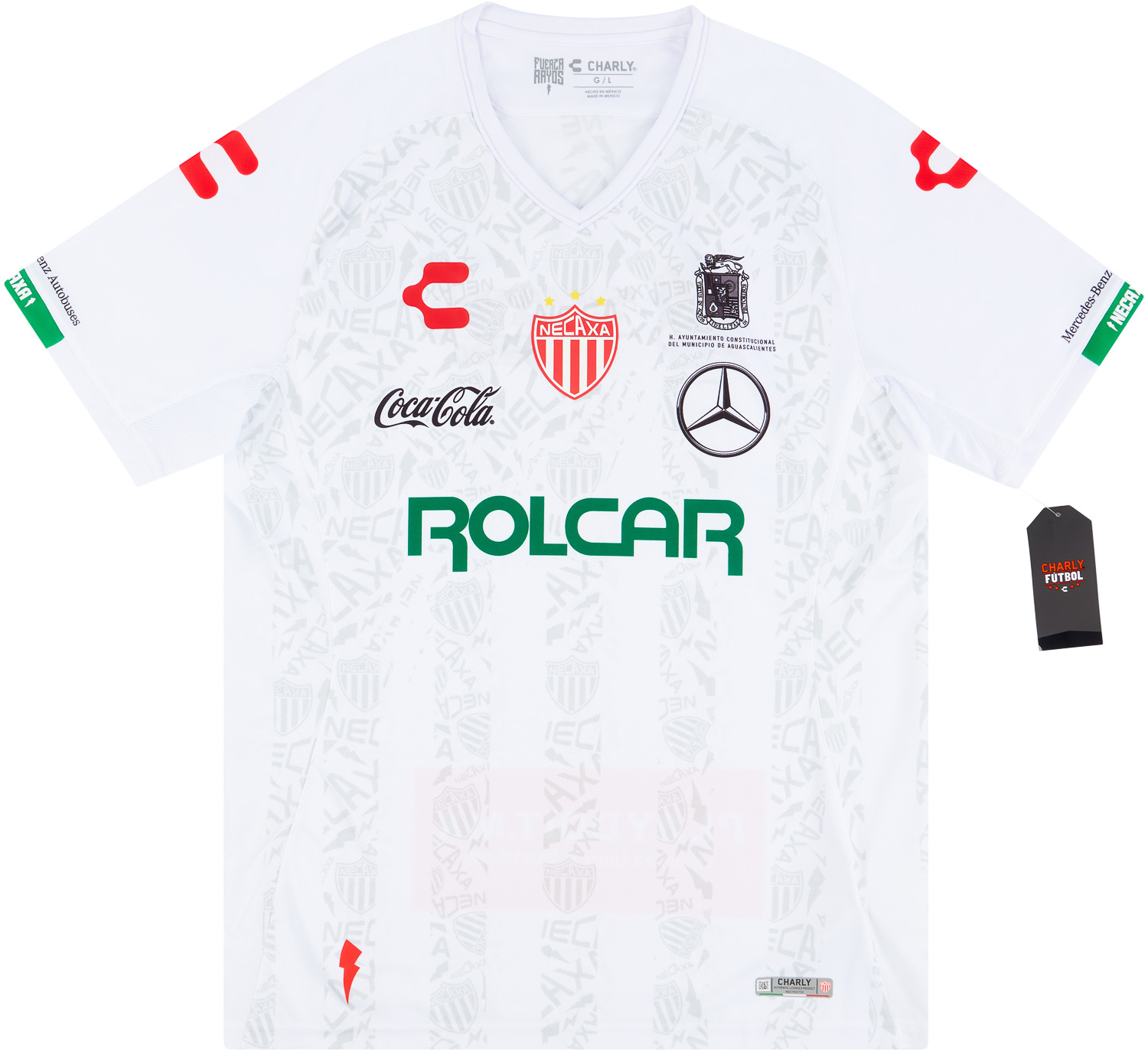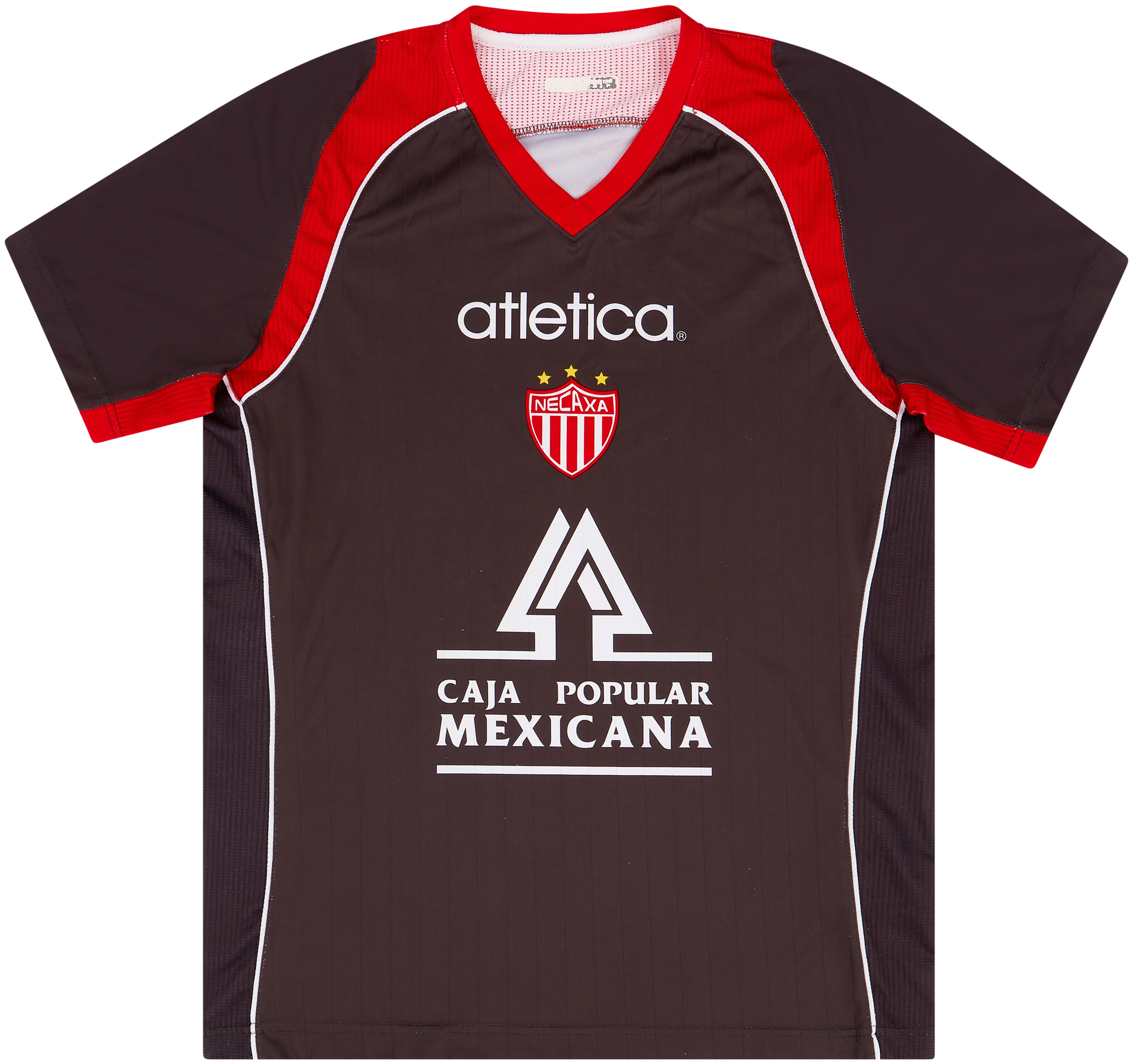Necaxa
Introduction Club Necaxa, one of Mexico’s pioneering football teams, has a rich and storied history that dates back to the early 20th century. Founded in 1923 in the city of Aguascalientes, Necaxa has garnered a dedicated fanbase and an enduring legacy in Mexican football. The club’s identity is steeped in tradition, characterized by a striking […]
2019-20 Necaxa Home Shirt - 9/10 - (L)
58.99£ - ca: €70
2019-20 Necaxa Home Shirt
58.99£ - ca: €70
2019-20 Necaxa Away L/S Shirt (M)
47.99£ - ca: €57
2019-20 Necaxa Away Shirt
44.99£ - ca: €53
2017-18 Necaxa Third Shirt
41.99£ - ca: €50
2018-19 Necaxa Home Shirt (S)
41.99£ - ca: €50
2009-10 Necaxa Atletica Training Shirt - 9/10 - (S)
35.99£ - ca: €42
Introduction
Club Necaxa, one of Mexico’s pioneering football teams, has a rich and storied history that dates back to the early 20th century. Founded in 1923 in the city of Aguascalientes, Necaxa has garnered a dedicated fanbase and an enduring legacy in Mexican football. The club’s identity is steeped in tradition, characterized by a striking red and white color scheme, symbolizing its vibrant past and passion for the sport. As a club that has navigated the highs and lows of competitive football, Necaxa remains an essential part of the tapestry that makes up Mexico’s football scene.
Club History
Necaxa was established in 1923, originally under the name “Necaxa Electric Company Football Club,” by workers of a local electric company. The club quickly gained recognition, joining the Mexican league system in the 1930s. One of the pivotal moments in its history occurred in 1932 when Necaxa became a founding member of the professional league, signaling a new era for Mexican football. The club experienced its first significant success in the late 1930s, winning multiple league titles and establishing its reputation as a formidable force in football.
After several decades of fluctuating fortunes, Necaxa faced challenges in the late 1990s, leading to relegation from the top tier. However, the club rebounded and returned to prominence by the early 2000s, showcasing its resilience and ability to adapt to the ever-changing landscape of Mexican football.
Achievements
Throughout its history, Club Necaxa has achieved remarkable success. The club has won a total of 3 Liga MX titles, with championships coming in 1934-35, 1994-95, and 1995-96. In addition to league victories, Necaxa has claimed the Copa MX (then known as Copa México) multiple times, securing the trophy in 1948 and 1995, among others. The club’s success extends beyond domestic competitions; in 1995, Necaxa made its mark on the international stage by winning the CONCACAF Champions’ Cup, solidifying its status as a competitive player in club football across the continent.
These achievements, underscored by periods of dominance during the 1990s, help illustrate Necaxa’s legacy as one of the historical powerhouses in Mexican football. The club’s passionate pursuit of success has established it as a fan favorite, with a storied competitive spirit that continues to drive its ambitions.
Significant Players and Matches
Necaxa has been home to numerous legendary players who have left an indelible mark on the club and its fans. One noteworthy figure is Manuel “El Pichón” Lapuente, a forward known for his incredible goal-scoring ability in the 1960s. His impact on the pitch helped propel the team to future glories. Another significant player is Cuauhtémoc Blanco, one of Mexico’s most celebrated footballers, who had a brief but memorable stint at Necaxa in the late 1990s, contributing to their championship wins during that period.
Landmark matches in Necaxa’s history include the thrilling 1995 Copa MX final, where they faced off against Necaxa’s fierce rivals, and the nail-biting exhibitions against top-tier teams such as Club América and Chivas de Guadalajara. Matches with these teams have fostered intense rivalries and have often attracted large crowds, showcasing the passionate following that Necaxa has cultivated over the years.
Cultural Impact
The influence of Club Necaxa extends beyond the football pitch and into the cultural heart of Aguascalientes. The club’s rich history and traditions resonate deeply within the community, nurturing a sense of pride and unity among supporters. Matchdays transform into vibrant celebrations, as fans don their red and white colors and gather at Estadio Victoria to cheer for their team. This sense of community spirit has helped Necaxa maintain a devoted following through good times and bad, fostering a culture of loyalty and passion.
Moreover, Necaxa’s status as one of the oldest football clubs in Mexico means that its history is intertwined with the broader narrative of Mexican football evolution. The club has played a vital role in promoting football as a national pastime, inspiring future generations of players and fans alike.
Conclusion
In conclusion, Club Necaxa stands as a testament to the rich footballing history of Mexico. With a legacy of achievements, significant players, and a passionate fanbase, the club has made a significant impact within the sport. As it continues to strive for excellence, Necaxa remains a beloved symbol of tradition and resilience, aiming to reclaim its place among the elite in Mexican football. With each match, the club seeks not only to win but to honor its storied past and inspire its future, ensuring that Necaxa will forever be a notable name in the annals of football history.






